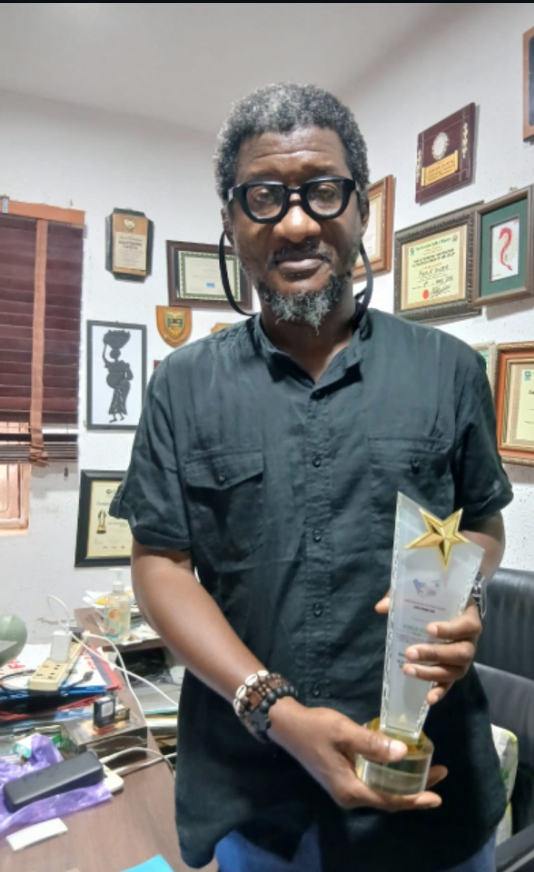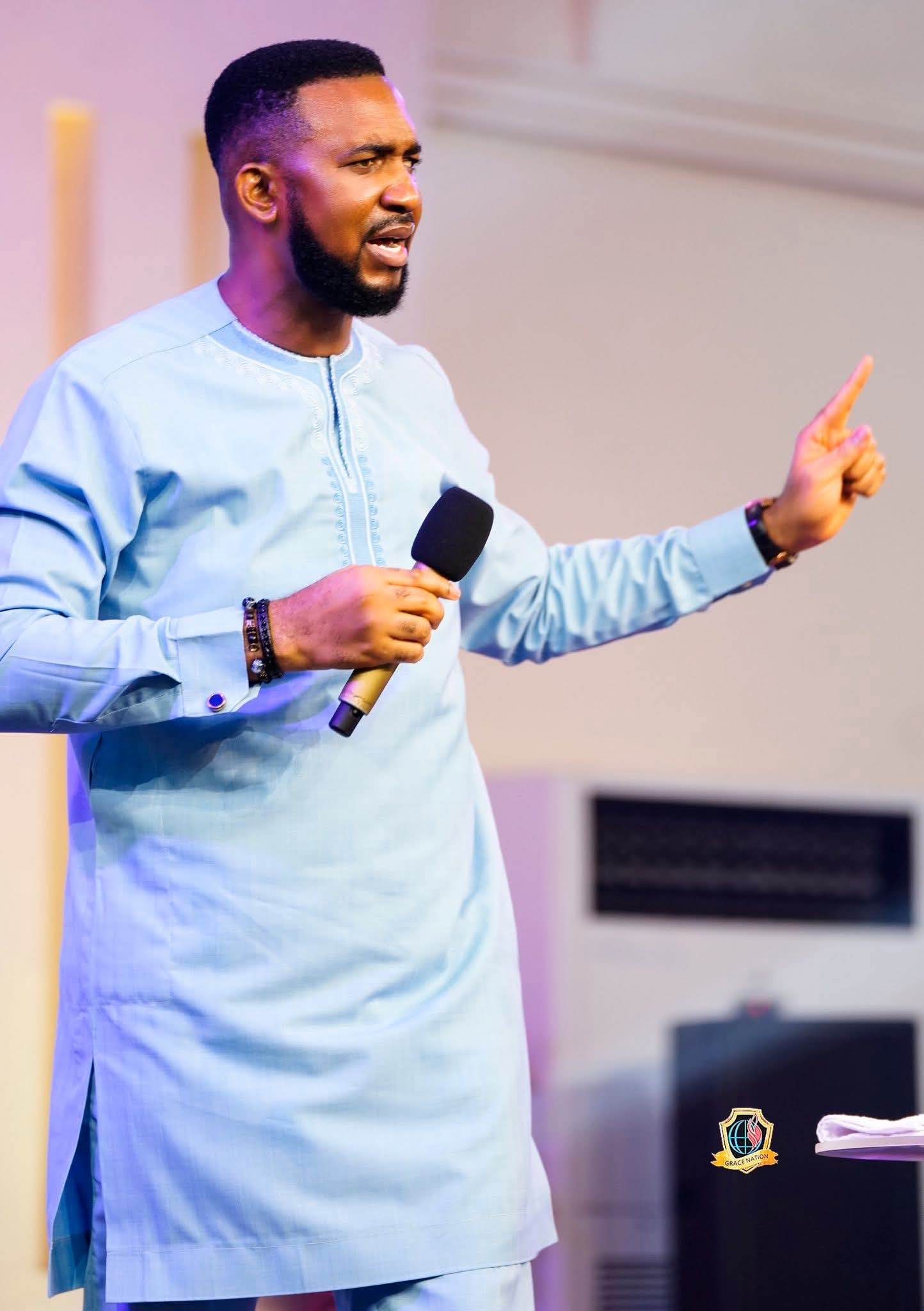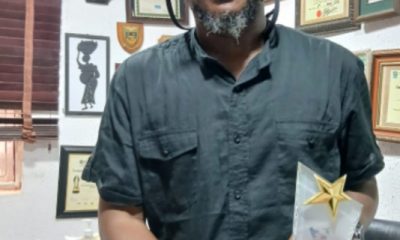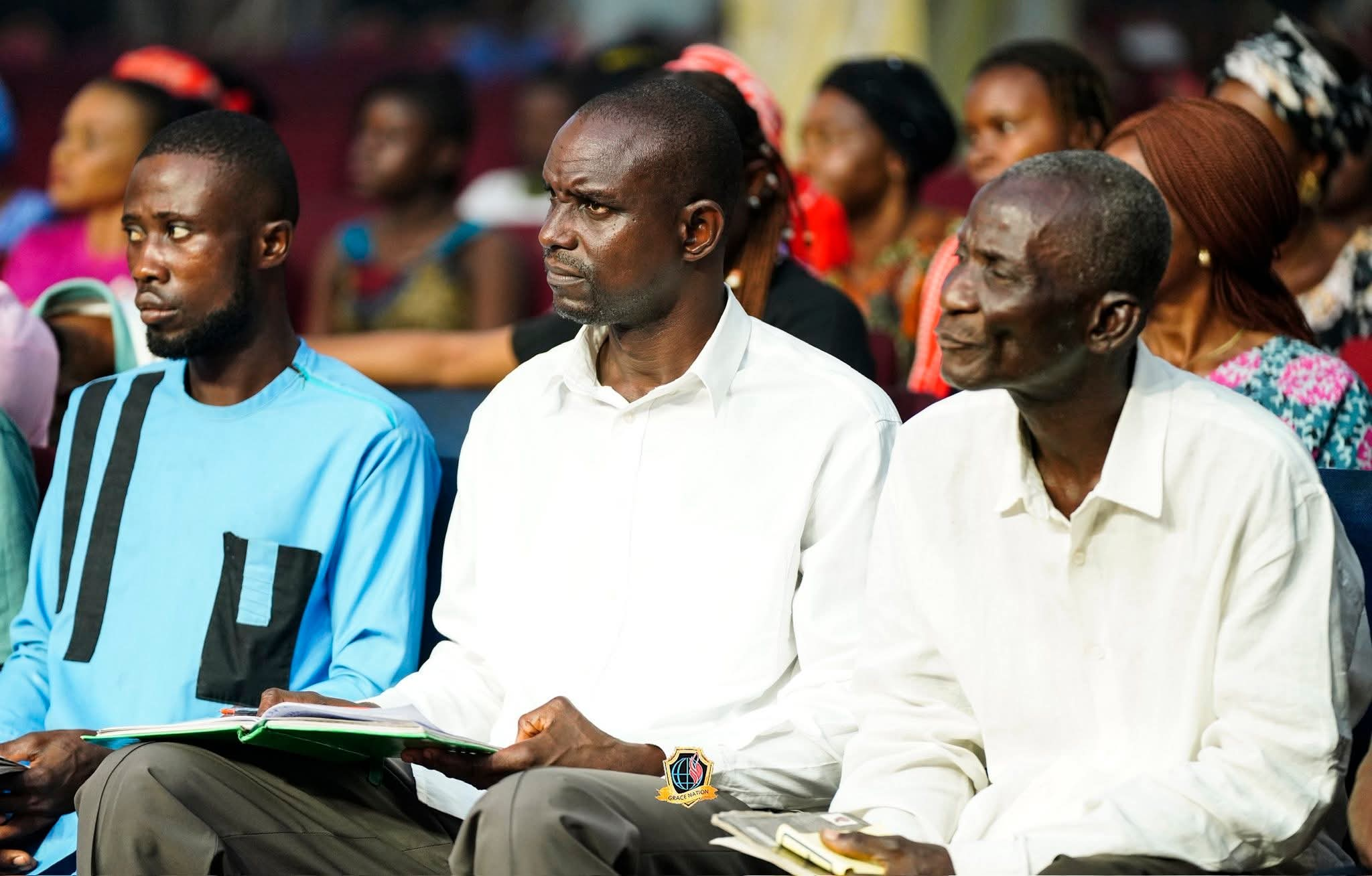celebrity radar - gossips
How I made my first million on Instagram — Debbiebarbie

Deborah Iwakun Edileola is the CEO Debbiebarbie skincare line. In this interview with ROTIMI IGE, she talks about the industry and how she aims to change perceptions as regards skincare.
How did you get into the beauty business?
I started a few years back when I had issues with my skin. I had tried many things and they weren’t working, so I had to start reading and researching myself. I made some products for myself and it worked like magic. People would come up to compliment my skin and ask what I used. That was when I realised that I liked giving people skin advice. I have been in business for about four years now.
What would you say your success rate has been like?
It has been great. When I started, I was making products at home and selling online. Later, we were able to expand and get a better space. We have built a good customer base both in Nigeria and all around the world.
COVID-19 pandemic affected a lot of businesses. Did it affect your sales too, since people were not going out much?
The fun part is that during the lockdown, I made more sales than ever because I made people see reasons to care for their skin. People had less stress to contend with and I advised them to try out our products. It was the perfect time for the skincare business. Many wanted to look good when they resume work after the lockdown is over. So truly, for my own business, the lockdown was favourable. Now that the economy is opening up though, people are a little more prudent with their spending.
A lot of people are quite sceptical about products in Nigeria, how do you reassure people?
Our products are safe. We sent them to certified laboratories for analysis and all we are expecting now is the NAFDAC number and the process is already on, including NAFDAC inspections. The truth is that if our products are not safe, I won’t want to register it. I know it’s safe, hence my confidence. If a client is scared to buy online, they can simply walk into our store.
Some people don’t use the right products and they conclude that the products aren’t working when they are the ones that aren’t using the right thing for their skin type. The fact that a product worked on one person does not mean it will work on another person. I counsel and ask questions to understand each client’s
Have you ever gotten a skin type you could not handle or bad reactions?
No. The basic thing is knowing how to handle clients. There are situations where a client would try our product and they might break out initially. I let them understand that when you change your skincare product at times, your skin might purge. That doesn’t mean it is bad; it’s just that your skin is trying to cleanse itself and get used to the new product you are introducing to it. Skin purging doesn’t last for more than three to four weeks. So when you explain, they are patient.
Some people still believe they can employ makeup to cover flaws. What’s your take on that?
Makeup should not always be the solution because sometimes your skin just needs to breathe. If it doesn’t breathe, you will break out. In this part of the world, we don’t read the ingredients on our products. There are some products that when you use them on your skin, based on the kind of skin you have and the ingredients, you will break out. By reading labels, you become familiar with these things.
As a young woman in business, what are the lessons you have learnt so far?
Make your mistakes your own way. There’s nothing wrong with starting small with trial and error; just don’t give up. If it is your dream, stay focused. Beginnings are never rosy, but along the line, you see things and learn from your mistakes. Those experiences make you better.
Have you ever been at the receiving end of any stereotype?
Once you are in the skincare business, people believe you are bleaching. People attack me quite a bit on social media, and I used to feel bad. Now, I just reply and block them. You can’t make me feel less than I am anymore. This business has also made me realise that there are demand and supply; whether you supply it or not, someone else will do it, so why don’t you do it. Skincare is not bleaching. However, when you get to a certain point in your life when you start living well, there is no way you won’t glow. You’ll look more beautiful. Everyone wants to brighten up a bit and glow and we have products that are safe, approved all over the world, and natural that would give you that result. It’s just that in Nigeria, people are very judgemental, so you have to stand your ground and understand the place of your business and know that there is demand.
Some people don’t believe in putting their business on social media as a result of backlash and criticism. What’s your take on that?
Are you kidding me? Why would you not put your business on social media, especially Instagram? Trust me, billions of dollars flies on Instagram every day, you just have to know your way around it. I made my first million on Instagram. So, my advice is that people should put their business online, especially with the situation of the world now. Things are changing now and the world is going online. E-commerce is taking over traditional commerce; you just have to maintain a physical store for those who still need to walk in. No one would come from the UK to buy products in Nigeria, but social media changes that. All my international clients got to know me through my social media handles.
How profitable is the business?
I don’t have any other business, this is all I have for now and it pays the bills. We expanded and we now do facials and other skin treatments. We have a spa too. The fun thing about this business is that if you know how to go about it, there is a lot of money on it. Virtually every woman wants to look good. People want to bathe, I sell soap, cream… you can’t run out of business when it comes to beauty.
How affordable are your products though?
In business terms, you need to realise that your target clients must be able to afford you. My target clients are working-class ladies. Still, we are quite affordable.
Was this your dream career?
No. The plan was to be an air hostess. But life puts you in situations where your dreams change. I lost my father at some point. I’m grateful for my mum because after my father passed on, she worked hard to put us through university. I never wanted to work for someone else because I knew I could never get the kind of money I want. My mother didn’t like it when I ventured into this, but I explained to her and reminded her that she was able to care for us because she was also in business and not working for someone.

celebrity radar - gossips
Another Feather for Nollywood Icon Fidelis Duker

**Another Feather for Nollywood Icon Fidelis Duker
*Lagos, Nigeria* — In a remarkable celebration of artistic achievement, renowned Nollywood figure Fidelis Duker received yet another prestigious accolade last weekend, solidifying his role as a key player in the growth of the Nigerian and African film industries. The award was presented in a ceremony held at Duker’s Lagos office by esteemed film and theatre director, Mr. Alex Eyengho, founder of the Warri International Film Festival, alongside Marketing and Strategy Director, Mrs. Matel Eyengho.
The recent recognition builds upon Duker’s previous achievement at last year’s ECOFEST in Dakar, where he was honored with a Lifetime Achievement Award. This latest accolade is a testament to his unwavering dedication and substantial contributions to the cinematic landscape.
“I am truly humbled by this recognition,” Duker expressed during the event. In his speech, Alex Eyengho lauded Duker’s pioneering efforts in establishing significant film festivals in Nigeria, particularly the Abuja International Film Festival, which has played a vital role in promoting local talent and storytelling.
Eyengho emphasized, “Fidelis has not only paved the way for emerging filmmakers but has also helped elevate Nigerian cinema on the global stage. His creative vision and commitment inspire all of us in the industry.”
As Duker reflects on this honor, he acknowledges the importance of teamwork and collaboration in achieving success. “This acknowledgment reaffirms to my team and me that our work is being observed, and it motivates us to continue contributing to the development of our sector,” he stated.
With numerous projects on the horizon, Duker remains a relentless advocate for the growth and recognition of African cinema. His latest recognition is yet another testament to the vibrant and evolving landscape of Nollywood, as industry leaders like him continue to inspire future generations.
As the film industry anticipates the next phase of development, Duker’s continued influence signals a promising future for filmmakers in Nigeria and across the continent.
celebrity radar - gossips
E‑Money’s Grand Gesture: A Closer Look at the SUV Gift to Chinedu “Aki” Ikedieze

E‑Money’s Grand Gesture: A Closer Look at the SUV Gift to Chinedu “Aki” Ikedieze
By George Omagbemi Sylvester | Published by SaharaWeeklyNG
“Public Generosity, Celebrity Loyalty and the Symbolism of Wealth in Nigeria’s Entertainment Elite.”
On Tuesday, February 17, 2026, Nigerian billionaire and entrepreneur Emeka Okonkwo, widely known as E‑Money, once again captured national attention with a lavish and highly publicised act of generosity, gifting a brand‑new 2024/2025 Ford SUV to veteran Nollywood actor Chinedu Ikedieze, affectionately called Aki, during his high‑profile birthday celebration.
The event, held in Lagos amidst a constellation of entertainers, business figures and socialites, was itself part of an annual tradition in which E‑Money marks his birthday (on February 18) with large‑scale giveaways and spectacular shows of material philanthropy. This year, he announced the gift of over 30 cars to friends, staff and family, a gesture that quickly went viral as videos and images circulated across social media platforms.
In the case of Ikedieze, E‑Money’s gift appeared to be deeply personal. During the festivities, E‑Money stood beside his elder brother, Grammy‑nominated musician KCee and recounted how Ikedieze stood by him at his 2007 wedding. The billionaire explained that the SUV was a “token of appreciation” for the enduring support the actor had shown over the years which is a narrative that blends friendship with public celebration.
Ikedieze, a Nollywood staple with a career spanning more than two decades and over 150 film credits, including the iconic Aki na Ukwa franchise, visibly reacted with humble surprise as he received the vehicle, bowing his head in respect and gratitude. The actor later shared the moment on his Instagram account with a caption celebrating the gift, further fuelling online engagement around the event.
Beyond the spectacle, this incident underscores evolving dynamics in Nigerian celebrity culture and the intersection of wealth, influence and reciprocity. Sociologist Dr. Chinedum Uche of the University of Lagos, speaking on the broader implications of such high‑profile gifts, notes: “Philanthropy that is highly publicised can reinforce social bonds, but it also reflects a culture where generosity is intertwined with reputation economy; where giving becomes as much a social signal as it is an act of kindness.” The quote highlights how public acts of wealth transfer among elites serve layered social functions that extend beyond pure altruism.
Critics of such displays argue that ostentatious giveaways, particularly in a country with stark economic disparities, risk amplifying social envy and exacerbating perceptions of inequality. Economist Dr. Ifunanya Nwosu from the Lagos Business School observes: “In societies marked by economic stratification, celebrity largesse may inspire admiration, but it can also inadvertently highlight structural inequities; prompting questions about systemic investment in public welfare versus individual generosity.”
Still, supporters maintain that E‑Money’s annual tradition (which has in past years included cash gifts to his brother KCee, comedians and even domestic staff) reflects genuine gratitude and a commitment to uplifting his immediate circle, albeit within the private sphere.
For Ikedieze, the SUV stands both as a heartfelt gesture from a longtime friend and a public affirmation of their enduring relationship. As the video of the moment continues to circulate, the broader narrative has ignited discussions about the role of private wealth in public life, celebrity culture and how acts of giving are interpreted in contemporary Nigerian society.
In a landscape where influence and generosity often play out in equal measure on public stages, E‑Money’s gift to Aki is more than a headline, it is a flashpoint in ongoing debates about wealth, friendship and visibility in Nigeria’s entertainment and entrepreneurial ecosystem.
celebrity radar - gossips
Spiritual Reality: Wicked People Are Possessed by Wicked Spirits — Dr. Christian Okafor

Spiritual Reality: Wicked People Are
Possessed by Wicked Spirits — Dr. Christian Okafor
…..“You don’t need to offend them before they attack you.”
…..“Your only true help comes from God.”
Demons are strategic and calculating. They detect threats quickly and position themselves to resist any power that may expose or overpower them.
According to the Generational Prophet and Senior Pastor of Grace Nation Global, Christian Okafor, spiritual intelligence operates both in light and in darkness—and believers must understand this reality.
Dr. Okafor delivered this message on Thursday, February 19, 2026, during the midweek Prophetic, Healing, Deliverance and Solutions Service (PHDS) held at the international headquarters of Grace Nation Worldwide in Ojodu Berger, Lagos, Nigeria.
The Operations of Demons
Teaching on the subject “Spiritual Reality” with the subtitle “Operations of Demons,” the Man of God explained that when demons possess individuals, their behavior changes. Such people may attack, bully, or resist those sent by God to help them, unknowingly rejecting divine assistance and prolonging their struggles.
“You don’t need to offend a demon before it attacks you,” he said. “What you carry is enough to provoke opposition. The greater your potential, the greater the battle.”
Dr. Okafor noted that many believers misinterpret battles as signs that God has abandoned them. However, he explained that some battles are permitted for growth, training, and divine glorification.
According to him, God may allow certain confrontations so that believers understand spiritual warfare and emerge stronger.
“Some battles are necessary,” he emphasized. “They push you into your turning point.”
He further stated that God does not respond to lies, blackmail, or bullying. He responds to His Word. Therefore, opposition is not proof of God’s absence, but often evidence of destiny at work.
The Weapon Against Demonic Attacks
Addressing solutions, Dr. Okafor described prayer as the strongest weapon against satanic operations.
“Prayer is the license that invites God into your battles,” he declared. “God does not intrude—He responds to invitation.”
According to the Apostle of Altars, understanding the principles and discipline of prayer enables believers to receive divine strategies for overcoming demonic resistance. Without prayer, he warned, spiritual help cannot be activated.
“You cannot receive help without God,” he concluded. “And you cannot engage God without prayer.”
Manifestations at the Service
The midweek gathering was marked by a strong move of the Spirit, with testimonies of deliverance, miracles, restoration, and solutions to various challenges presented before God. Several individuals reportedly committed their lives to Christ during the service.
-

 celebrity radar - gossips6 months ago
celebrity radar - gossips6 months agoWhy Babangida’s Hilltop Home Became Nigeria’s Political “Mecca”
-

 society6 months ago
society6 months agoPower is a Loan, Not a Possession: The Sacred Duty of Planting People
-

 society5 months ago
society5 months agoReligion: Africa’s Oldest Weapon of Enslavement and the Forgotten Truth
-

 news6 months ago
news6 months agoTHE APPOINTMENT OF WASIU AYINDE BY THE FEDERAL GOVERNMENT AS AN AMBASSADOR SOUNDS EMBARRASSING










